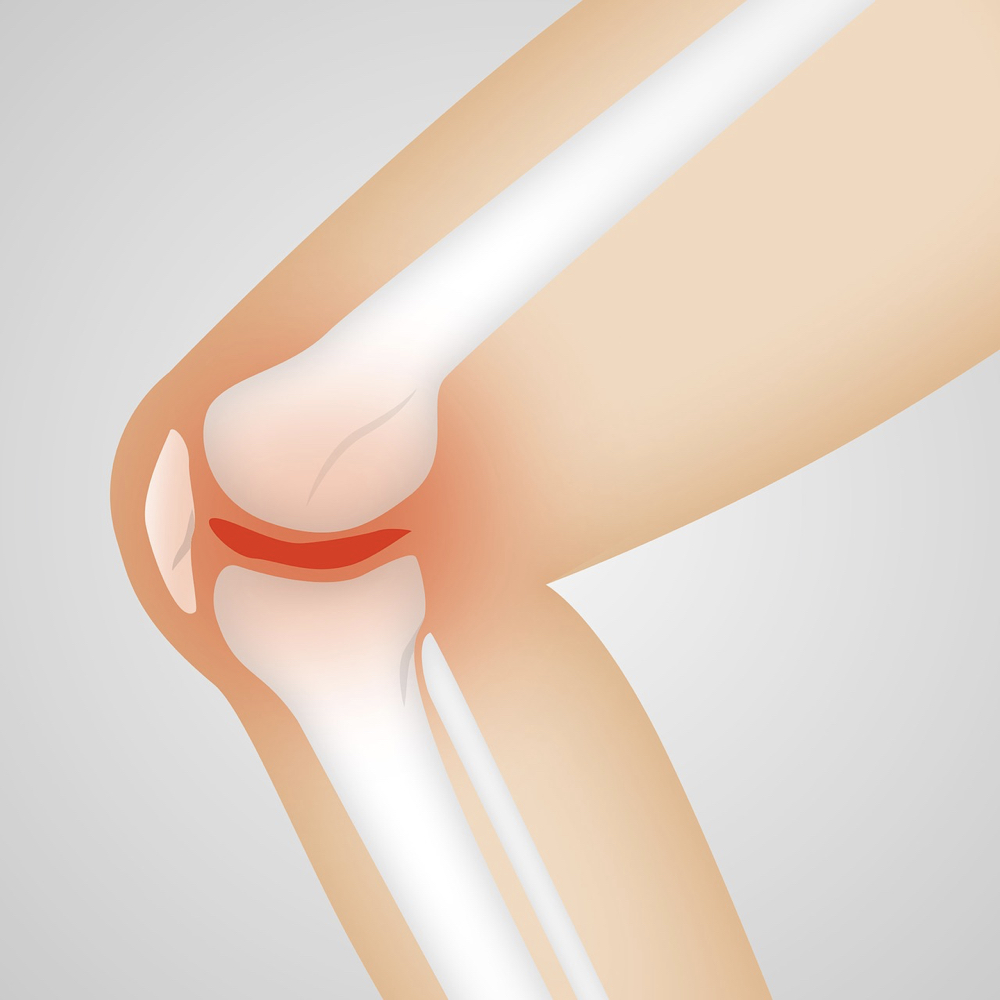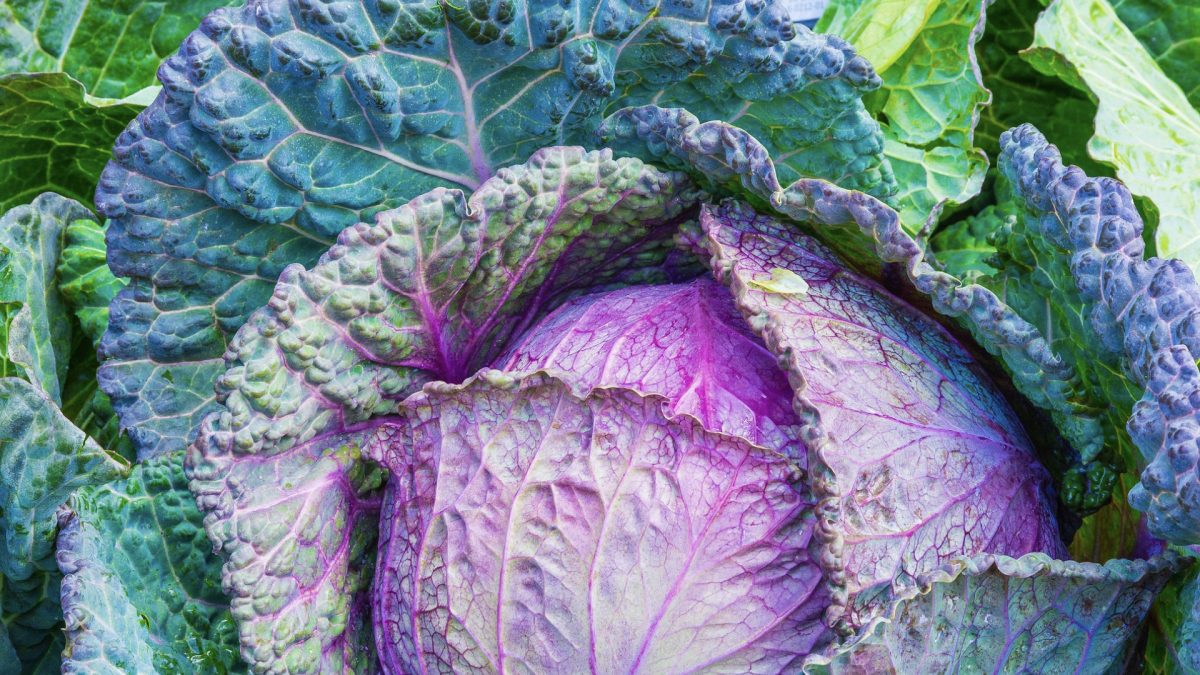
Osteoarthritis
Osteoarthritis is the most common joint disease in the world, and obesity may be its main modifiable risk factor.
Osteoarthritis develops when the cushioning cartilage lining of joints breaks down faster than the body can build it back up. The knees are the most commonly affected, leading to the assumption that the disease’s relationship to obesity was simply the excess wear and tear from added load on the joints. Non-weight-bearing joints, like the hands and wrists, can also be affected, however, which suggests the link isn’t purely mechanical. Obesity-related dyslipidemia may be playing a role, with elevations in the amount of fat, cholesterol, and triglycerides in the blood aggravating inflammation in the joints.
Losing just around a pound a year over a span of a decade may decrease the odds of developing osteoarthritis by more than 50 percent. Weight reduction may even obviate the need for knee replacement surgery. Within just eight weeks, obese osteoarthritis sufferers who had been randomized to lose weight improved their knee function as much as those going through surgery. Researchers concluded that losing around 20 pounds of fat may be viewed as an alternative to knee replacement.
Is there anything we can do diet-wise to help treat osteoarthritis? Indeed, curcumin, the bright yellow pigment in the spice turmeric, may not only play a role in preventing or treating lung disease, brain disease, and a variety of cancers, including multiple myeloma, colon cancer, and pancreatic cancer, but it has also been shown to help speed recovery after surgery and effectively treat rheumatoid arthritis better than the leading drug of choice, as well as be effective in treating osteoarthritis and other inflammatory conditions, such as lupus and inflammatory bowel disease.
Turmeric is so promising that I recommend a quarter teaspoon a day in my Daily Dozen.
For substantiation of any statements of fact from the peer-reviewed medical literature, please see the associated videos below.
Image Credit: Pixabay. This image has been modified.
Popular Videos for Osteoarthritis


Berries for Inflammation and Osteoarthritis Treatment
Double-blind, randomized, placebo-controlled trials on berries and the first clinical study on the effects of...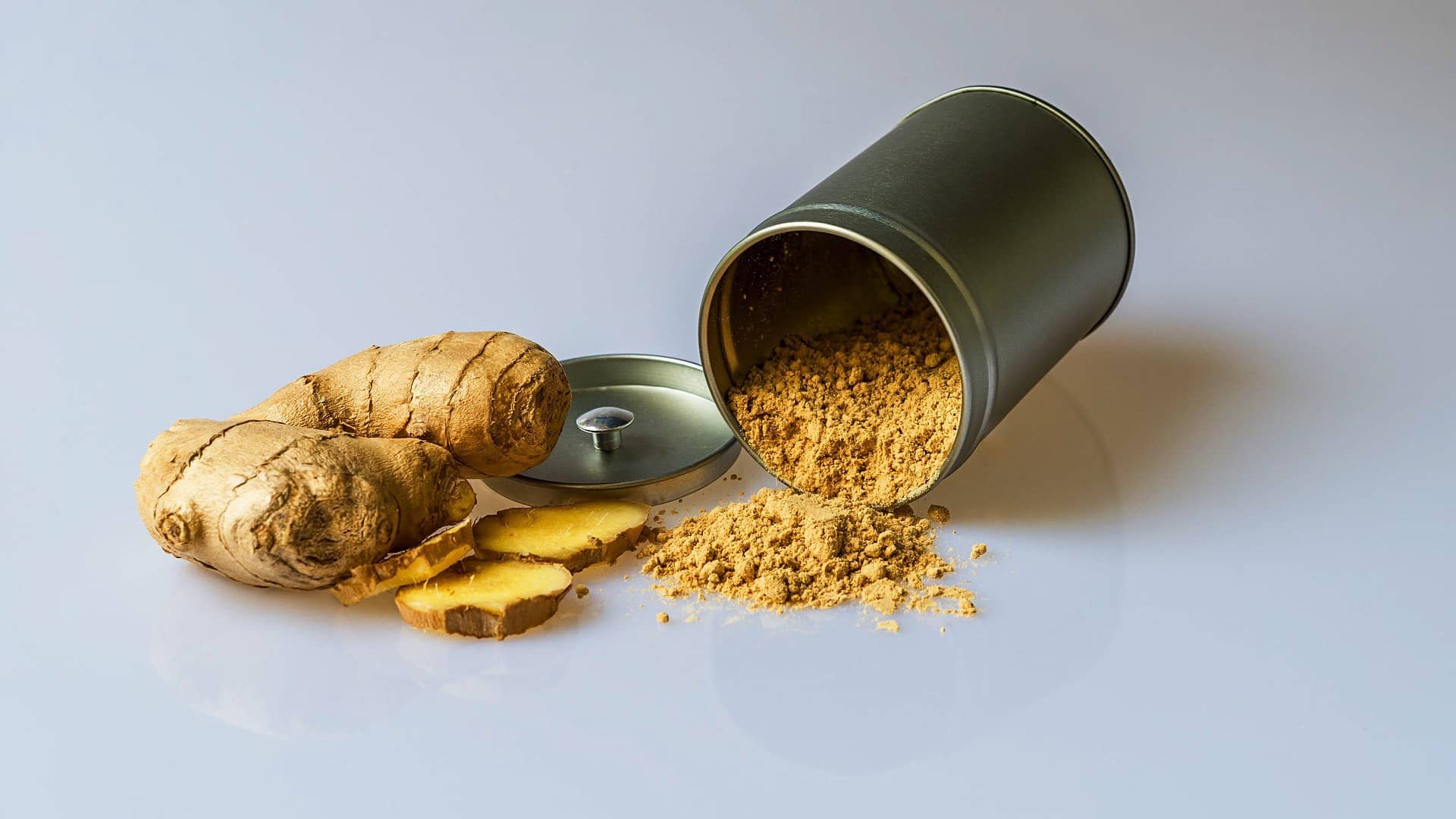
Ginger for Osteoarthritis
A quarter- to a half-teaspoon a day of powdered ginger can be as pain-relieving as...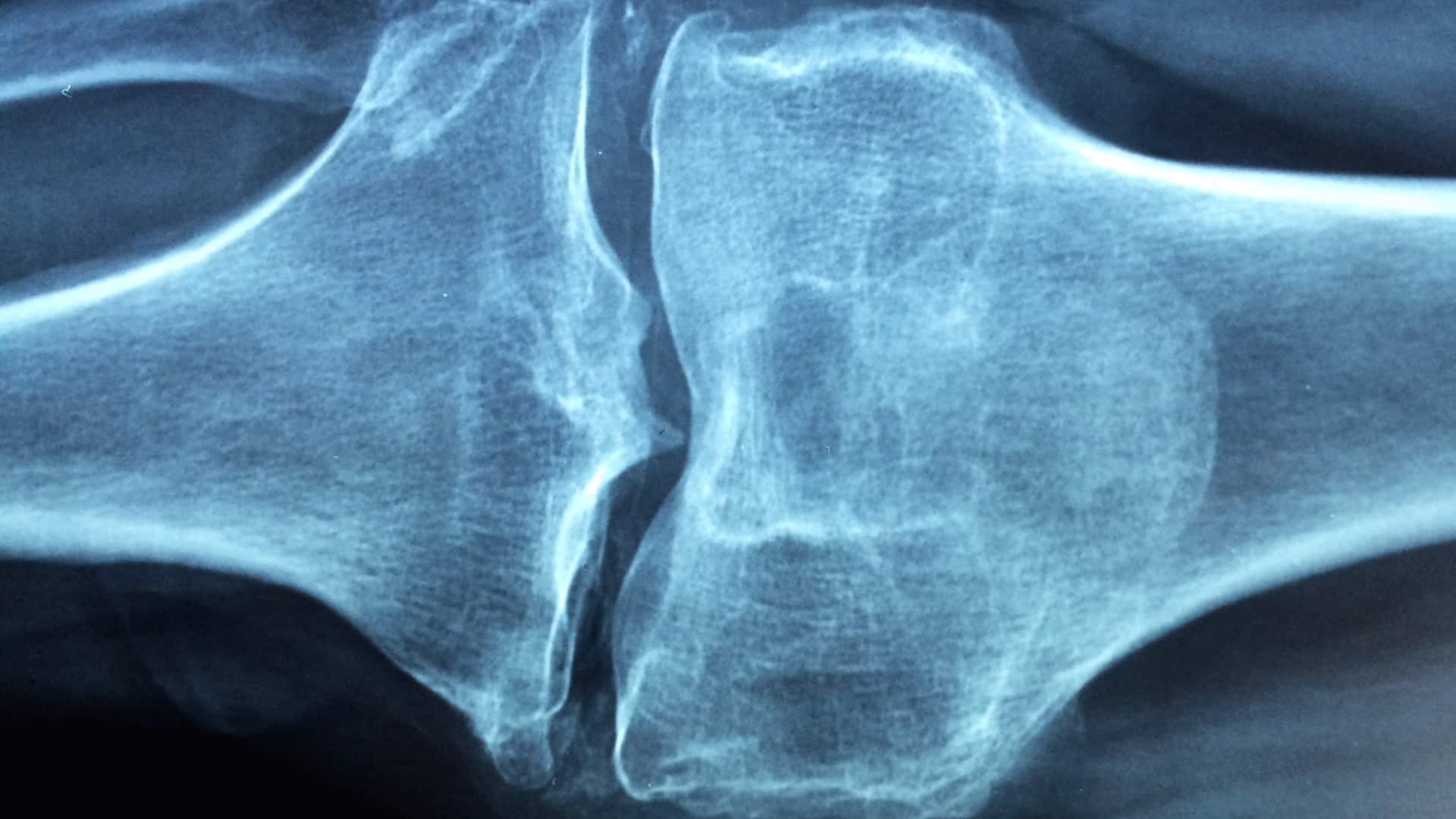
Sesame Seeds for Knee Osteoarthritis
Can the consumption of sesame seeds improve the clinical signs and symptoms of arthritis?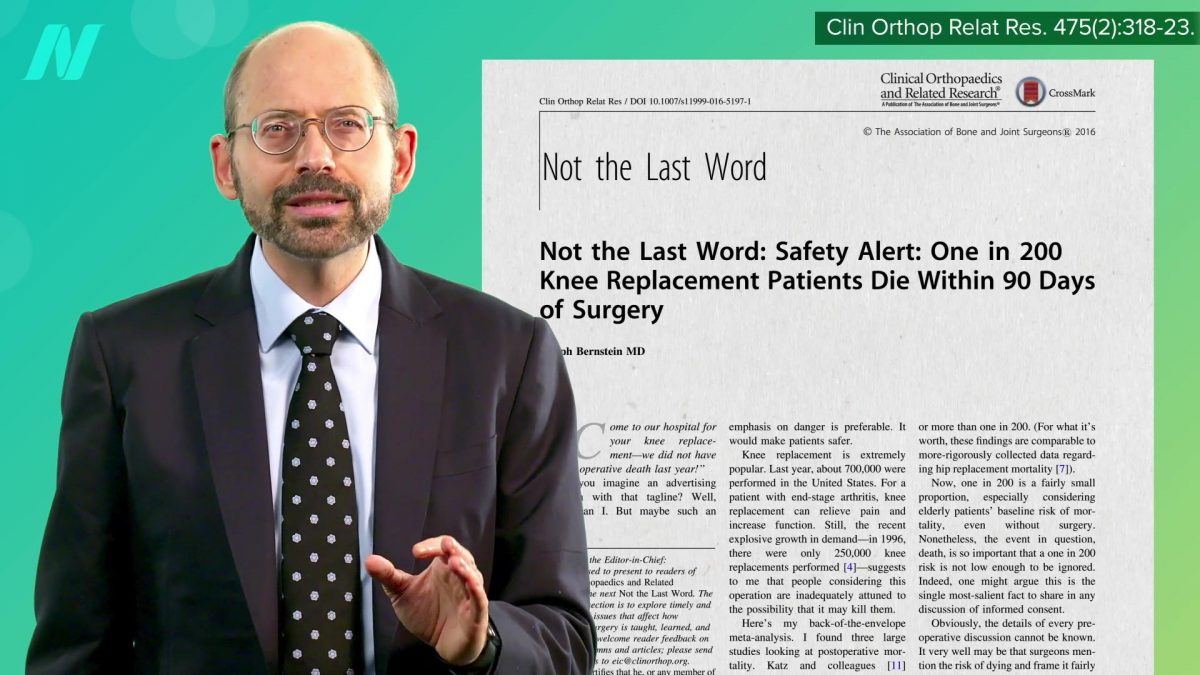
The Best Knee Replacement Alternative for Osteoarthritis Treatment
Is there a nonsurgical alternative to knee replacement surgery that instead treats the cause and...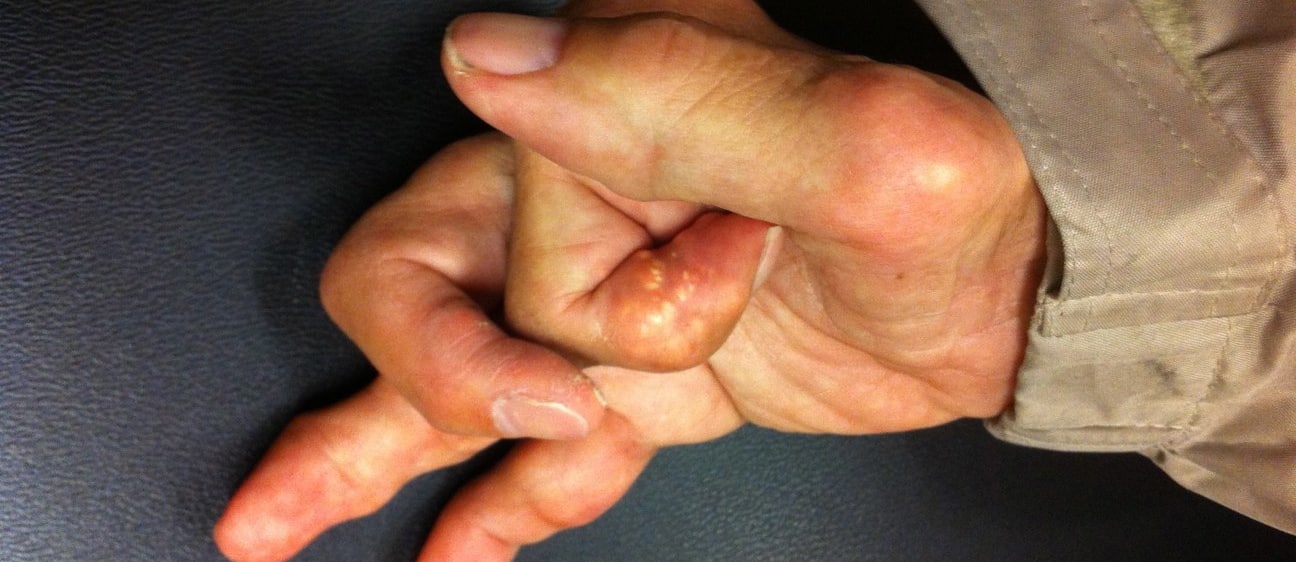
Turmeric Curcumin and Osteoarthritis
The yellow pigment curcumin in the spice turmeric may work as well as, or better...All Videos for Osteoarthritis
-

Anti-Inflammatory Foods: The Benefits of Berries
Which fruits have anti-inflammatory effects and which do not?
-

Comparing the Benefits and Side Effects of Ozempic (Semaglutide)
Obesity can be so devastating to our health that the downsides of any effective drug would have to be significant to outweigh its weight-loss benefits.
-

How Many Steps Should We Get Every Day?
The official exercise recommendations are a “trade-off between optimizing health outcomes and minimizing requirements for individuals,” but what does the science say is best?
-

Benefits and Side Effects of Chondroitin for Osteoarthritis
Why do some clinical guidelines recommend chondroitin supplements but others do not?
-

Benefits and Side Effects of Glucosamine for Osteoarthritis
Billions are spent on glucosamine supplements every year. Do they work? Are they safe?
-

Resveratrol Tested for Alzheimer’s, Arthritis, and Osteoporosis
Resveratrol appears to triple the rate of age-related brain shrinkage.
-

Collagen Supplements for Arthritis
Can collagen beat out placebo for knee osteoarthritis?
-

How Not To Age – Live Presentation
In this live lecture, Dr. Greger offers a sneak peek into his latest book, How Not to Age, a New York Times Best Seller.
-

Yoga Put to the Test for Headaches, Diabetes, Osteoarthritis, and the Elderly
What happens when real yoga is compared to sham yoga?
-

The Best Diet for Fibromyalgia and Other Chronic Pain Relief
Anti-inflammatory diets can be effective in alleviating chronic pain syndromes.
-

Pomegranate: A Natural Treatment for Rheumatoid Arthritis
Pomegranates are put to the test for weight loss, diabetes, COPD, prostate cancer, osteoarthritis, and rheumatoid arthritis.
-

Is Gastric Balloon Surgery Safe and Effective for Weight Loss?
Sham surgery trials have shown us that some of our most popular surgeries are themselves shams.
-

Extra Virgin Olive Oil for Arthritis
What happened when topical olive oil was pitted against an ibuprofen-type drug for osteoarthritis and rheumatoid arthritis?
-

The Best Knee Replacement Alternative for Osteoarthritis Treatment
Is there a nonsurgical alternative to knee replacement surgery that instead treats the cause and offers only beneficial side effects?
-

Fasting for Autoimmune Diseases
Various fasting regimens have been attempted for inflammatory autoimmune diseases such as lupus, ankylosing spondylitis, chronic urticaria, mixed connective-tissue disease, glomerulonephritis, and multiple sclerosis, as well as osteoarthritis and fibromyalgia.
-

The World’s Largest Fasting Study
Buchinger modified fasting is put to the test.
-

Does Intermittent Fasting Increase Human Life Expectancy?
Alternate-day modified fasting is put to the test for lifespan extension.
-

Berries for Inflammation and Osteoarthritis Treatment
Double-blind, randomized, placebo-controlled trials on berries and the first clinical study on the effects of berries on arthritis.
-

Is Fiber an Effective Anti-Inflammatory?
Most Americans get less than half the recommended minimum fiber intake a day and the benefits of fiber go way beyond bowel regularity.
-

Benefits of Cabbage Leaves for Relief of Engorged Breasts
Cabbage is put to the test in a randomized controlled trial.
-

Ground Ginger to Reduce Muscle Pain
There have been at least eight randomized, double-blind, placebo-controlled trials of ginger for pain.
-

Benefits of Cabbage Leaves on the Knee for Osteoarthritis
Unbelievably, a randomized controlled trial of cabbage leaf wraps for arthritis was published.
-

Arsenic in Rice Milk, Rice Krispies, & Brown Rice Syrup
I recommend people switch away from using rice milk.
-

Ginger for Osteoarthritis
A quarter- to a half-teaspoon a day of powdered ginger can be as pain-relieving as ibuprofen, without the risk of damage to the intestinal lining.
-

Sesame Seeds for Knee Osteoarthritis
Can the consumption of sesame seeds improve the clinical signs and symptoms of arthritis?
-

Food as Medicine: Preventing and Treating the Most Dreaded Diseases with Diet
Dr. Greger has scoured the world’s scholarly literature on clinical nutrition and developed this new presentation based on the latest in cutting edge research exploring the role diet may play in preventing, arresting, and even reversing some of our most feared causes of death and disability.
-

The Cilantro Gene
Why are there such polarizing opinions about the taste of the fresh herb cilantro (also known as coriander leaves)?
-

Turmeric Curcumin and Osteoarthritis
The yellow pigment curcumin in the spice turmeric may work as well as, or better than, anti-inflammatory drugs and painkillers for the treatment of knee osteoarthritis.
-

Spicing Up DNA Protection
The DNA of those cooking with spices such as ginger, rosemary, and turmeric appears less susceptible to breakage.
-

Which Spices Fight Inflammation?
An elegant experiment is described in which the blood of those eating different types of spices—such as cloves, ginger, rosemary, and turmeric—is tested for anti-inflammatory capacity.
-

Clinical Studies on Açaí Berries
An independent review of the effects of açaí berries was recently published, including studies on immune function, arthritis, and metabolic parameters.
-

The Leaky Gut Theory of Why Animal Products Cause Inflammation
A single meal of meats, eggs, and dairy can cause a spike of inflammation within hours that can stiffen one’s arteries. Originally, this was thought to be the result of saturated animal fat causing our gut lining to leak bacterial toxins into our bloodstream, leading to endotoxemia.
-

Dragon’s Blood
The four most antioxidant-packed natural substances so far tested are cloves, amla (Indian gooseberries), triphala (a combination of amla, bibhitaki, and haritaki fruits), and dragon’s blood.
